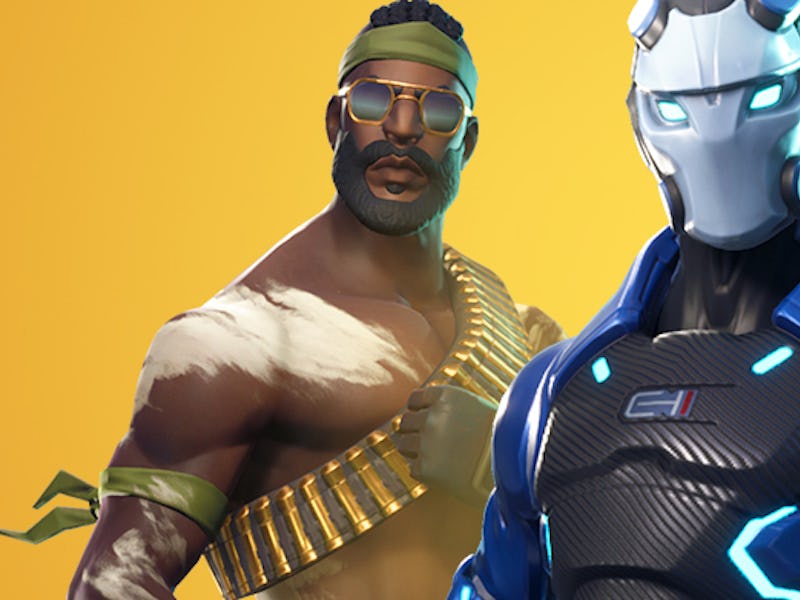Psychologists Criticize WHO Decision to Recognize 'Gaming Disorder'
The move was called "definitely premature."

On Monday, the World Health Organization announced that “gaming disorder” is now officially considered a mental health condition. While this change means gaming disorder is now an illness as far as the WHO is concerned, that doesn’t mean mental health professionals don’t still have deep concerns about the classification.
“Gaming disorder” will be included in the 11th edition of the WHO’s International Classification of Diseases, the guidebook used by doctors and insurance companies to label diseases and injuries as well as to figure out what insurance will cover. Its criteria for gaming disorder are three-fold: having trouble controlling your gaming, gaming more and more instead of taking part in other activities, and continuing to game despite consequences. These criteria sound pretty clear-cut, but some psychologists say that gamers who play a lot don’t necessarily have a problem. They also argue that labeling excessive gaming a “disorder” will not only create a problem where one doesn’t exist but will also make it harder to diagnose and treat the anxiety or mood disorders that may underlie problematic video gaming.
Psychologist Anthony Bean, Ph.D. tells Inverse that the move by the WHO is “definitely premature.” A clinical psychologist and researcher who specializes in gaming, Bean recently published a book called Working with Video Gamers and Games in Therapy: A Clinician’s Guide for other psychologists who are treating gamers. He worries that if gaming is treated as a behavioral disorder in and of itself, patients’ underlying issues may be ignored.
Obsession isn't necessarily the same as addiction.
“I see gaming usually as what we call a secondary condition to a primary of depression or anxiety when they come into a therapy session,” he says. “And as you work with anxiety or depression, the gaming reduces significantly.” In other words, it’s likely that patients who may be diagnosed with gaming disorder are using video games as a way to cope with these other mental health issues.
Bean also worries that the language used in the ICD-11 is so broad that it could lead to a diagnosis in people who are simply enthusiasts. If there isn’t sufficient research to support the WHO’s claim that video gaming is harmful in these individuals’ lives, this move could lead to classifying someone’s innocent enthusiasm for their hobby as a mental illness. As Inverse reported in 2017, researchers have found that people who might fit the American Psychiatric Association’s criteria for gaming disorder do not have negative effects in their lives in a way that would suggest a disorder.
Psychologists say playing a lot of video games isn't necessarily a bad thing.
Furthermore, Bean argues that this move shows a serious lack of effort on the part of the international health community to understand what makes people want to play video games and the social benefits they can derive from them. When Bean works with patients, he tries to learn what kinds of games they like, why they like them, what kinds of characters they play as, and so on. This insight can give valuable insights into the patient’s values and help them become a better person in the outside world.
“Whenever one creates a new diagnosis, they’re always supposed to start with queries into the culture and then build off of what is considered problematic,” he says, but the WHO hasn’t done this.
This isn’t to say that video games are always good for everyone. The video game industry has yet to publicly confront the ways in which psychological conditioning plays a role in getting people to spend money in freemium video games. But loot crates, microtransactions, and freemium games aren’t mentioned in the WHO decision, so the discussion still feels like the same one that’s been happening for decades: Are video games bad for you?
Video game addiction treatment centers have the potential to make a lot of money, now that the condition they treat will be reimbursable by insurance companies. Even though some would argue that the evidence to support the WHO’s decision is thin, some companies are already lined up to start treating people for gaming disorder.
“I think the biggest change will be financial,” says Chris Ferguson, Ph.D., a professor of psychology at Stetson University who focuses on video games. “Down the horizon, it’s going to make this disorder a diagnosable thing, which means people can get reimbursed for treating it. There are definitely financial incentives for some of these treatment clinics that exist.”
Ferguson points out that predatory treatment clinics can charge thousands of dollars to “fix” kids whose parents think they have some sort of gaming related issue. And while some clinics may be legit, in the end, he argues that calling video gaming a disorder could leave people worse off, even if the most apparent symptom appears to improve.
“You may reduce people’s game time, but not treat the underlying mental health issue,” he says. “All you’re doing is taking away their coping mechanism.”